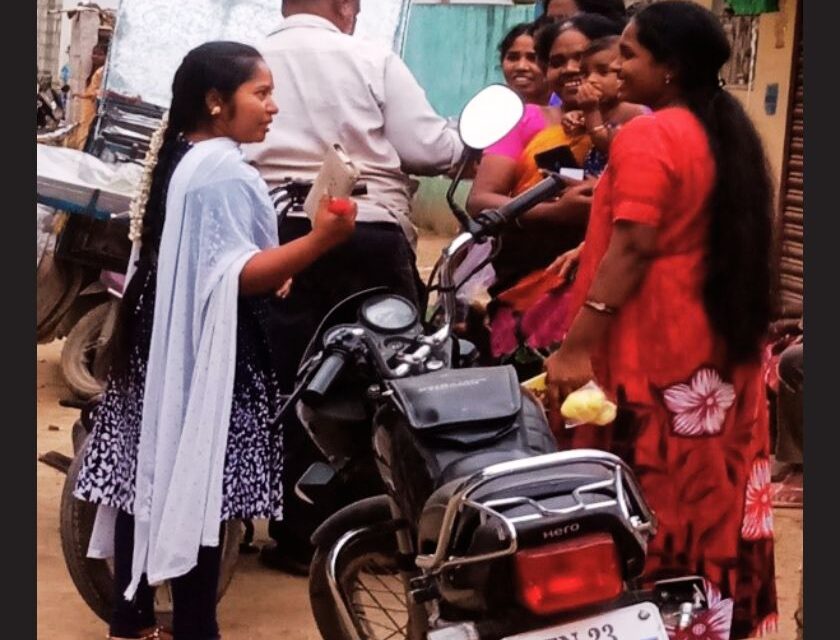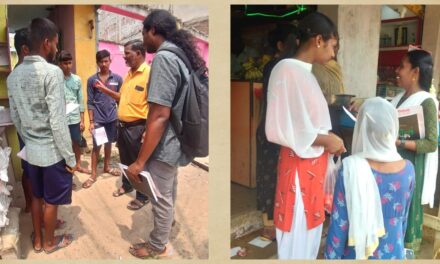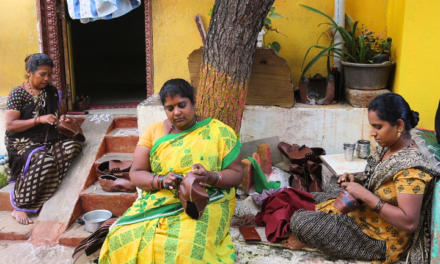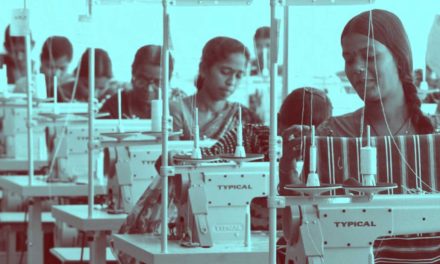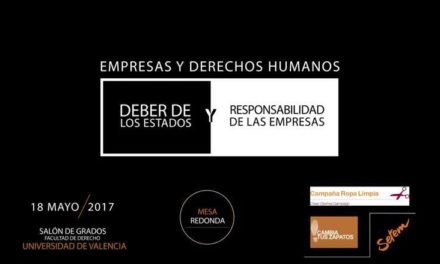Nandhini is a former contract worker for a factory supplying laptops to a major international electronics brand, in Sriperumbudur, Tamil Nadu. She lived in fear of losing her job. When it finally happened, she searched high and low for work, including with Cividep’s Worker Resource Centre (WRC) where she had been attending weekly study circles for workers. Today, along with her colleague and namesake Nanthini, she is in charge of organising study circles, and other solidarity-building exercises for hundreds of electronics workers in the region. Cividep’s WRCs enable workers to gather and collectively share their experiences, take part in awareness sessions and training camps on their rights and entitlements, and understand their link as workers to the large and dispersed global supply chains that employ them. Besides Sriperumbudur, Cividep has established WRCs in Ambur and Bengaluru, prominent leather and garment manufacturing clusters in South India respectively. There is an abundance of factories and young factory workers, of whom a sizable majority are women, in these regions. But that doesn’t make the work of Nandhini, who manages the WRCs along with others like her, easy. Cividep’s field staff have to overcome many obstacles to identify new workers, gain their trust, find suitable meeting places, and pique workers’ interest to get them to attend study circles. How do they convince young workers glued to their phones to give it up for a few hours on a precious Sunday reserved for sleep and chores? Read on.
Gates To Workers Are Manned by Security Guards & Landlords
We can’t meet workers inside factories. There is security manning the gates, and when workers come out they are inside company buses. Meeting them at their residence also poses problems, with local landlords being as guarded and suspicious as the factory management. They demand that visitors get their permission, as they also stay in the same building or neighbourhood as the workers. Even after granting permission, they trouble us. For instance, if we stay for more than half an hour, they come and say that we have to pay ‘rent’ as we were there for a long time. To overcome this, we wait for workers at their bus points. Workers, who are mostly migrants, (from within and outside Tamil Nadu), are wary of strangers like us. At most, we get around 5-10 minutes to talk at these bus points, but building trust takes time.
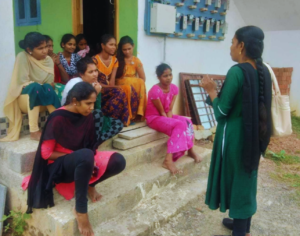 Cividep Field Staff interacting with workers outside their residences
Cividep Field Staff interacting with workers outside their residences
Sundays are their only days off and go in cooking, washing, and shopping. Even if we say that they might benefit and learn something about their rights at the workplace by coming to the WRC, it is difficult to get them to spare an hour. The shift system makes it difficult to catch them on Sundays. For example, if they do the Saturday night shift, they prefer to sleep the entire Sunday. Also, these are young women in the age group of 18-27 who are always on their phones. When we say you can get to know about an important labour law or the details about PF and ESI benefits, some say that they prefer to browse on their smartphones and that they don’t need our guidance. Another challenge is when companies recruit women from interior villages where there is not even a government bus service. To meet these women we have to take a bus to the nearest stop and walk at least 2-3 km along isolated routes, sometimes through forests to reach these villages.
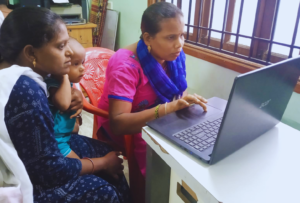 In pic: Leather homeworkers learning computer skills at the Cividep WRC in Ambur
In pic: Leather homeworkers learning computer skills at the Cividep WRC in Ambur
But we try to get over such challenges as best as we can. For example, during the pandemic, we experimented with new ways of outreach through online meetings over WhatsApp and Zoom. The workers’ children often helped their mothers learn these new ways of connecting. Today, we also organise computer training sessions for the leather workers’ children.
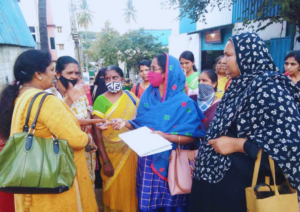 Field staff from Cividep’s partner organisations meet workers outside garment factories
Field staff from Cividep’s partner organisations meet workers outside garment factories
It is difficult to meet or gather many workers at a time, especially on weekday evenings. Workday timings and overtime requirements vary with each factory. We sometimes organise factory gate meetings and also visit worker localities. Many workers are hesitant to interact with us due to strict husbands or in-laws. But we are tackling these problems. Field workers and counselors visit workers at homes more often and inform them about the activities and support facilities available at the WRCs. This motivates them, and there has been a small increase in the number of workers calling in for help and support.

